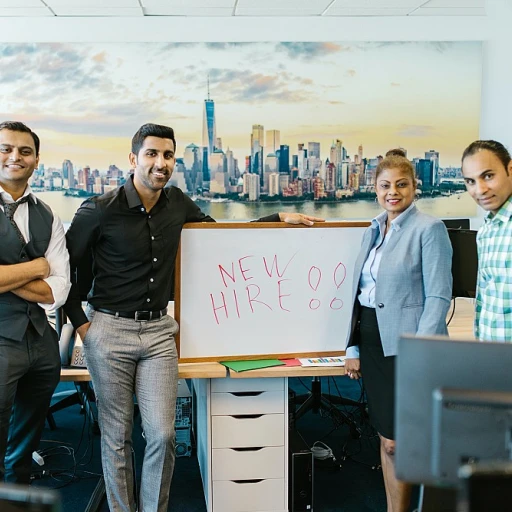The Role of Personal Values in Driving Change
The Intersection of Personal Values and the Drive for Change
Understanding the drive behind pursuing change in corporate culture often begins at a deeply personal level. Individuals bring their unique set of values and beliefs into the workplace, which can significantly influence their motivations. When personal goals align with professional ones, there is a strong sense of purpose. This alignment can motivate people to contribute to broader changes within their organization. In recent years, personal experiences related to social justice and civil rights have heightened the awareness of injustice and inequality, prompting a demand for more empathetic corporate environments. People struggle with issues that impact their everyday life and seek to work in organizations that reflect their personal growth aspirations. Factors such as emotional intelligence, a sense of life goals, and the desire to be part of something bigger are key drivers. These factors not only motivate people to pursue a better future but also trigger actions towards organizational change. As corporate environments become more dynamic, employees are increasingly aware that meaningful change requires more than just abstract ideals—it needs concrete steps and social endeavors. For those eager to explore how these intersections shape the modern workplace, the shift in company culture continues to be an engaging topic. By understanding what motivates people on a personal level, companies can better accommodate and even encourage the steps needed to foster an environment conducive to positive change. This not only benefits individuals but also invigorates social change efforts within corporate settings.The Influence of Leadership on Change Motivation
The Crucial Role of Leadership in Change Motivation
Leadership plays a pivotal role in motivating change within a corporate setting. It's not just about setting a vision or outlining goals; it’s about embodying the change you wish to see. Leaders who are genuinely committed to transformation can inspire their teams by aligning change initiatives with a sense of purpose that resonates on a personal level with employees.
One of the key factors that motivates people is the presence of a leader who demonstrates a commitment to social change and justice. When leaders take a stand against injustice and inequality, they not only set a precedent but also create an environment where employees feel their work contributes to a better future. This alignment with personal values and social justice can be a powerful motivator.
Moreover, leaders who actively engage with their teams, listen to their struggles, and provide concrete steps for overcoming challenges can significantly influence the motivation levels of individuals. By acknowledging the emotional and practical aspects of change, leaders can help employees navigate the complexities of transformation.
It's essential for leaders to communicate effectively, ensuring that every team member understands what motivates the change and how it aligns with both organizational and personal goals. This clarity can transform a vague sense of change into a tangible path forward, motivating employees to take action and embrace new ways of working.
Ultimately, leaders who foster a culture of personal growth and continuous improvement can create a dynamic environment where change is not only accepted but actively pursued. By prioritizing these elements, leaders can drive meaningful and lasting change in their organizations.
The Impact of Organizational Culture on Change Efforts
The Interplay Between Organizational Dynamics and Change Efforts
Organizations aiming for change often encounter the intrinsic influence of their own culture—a layered blend of shared values, beliefs, and practices established over time. Understanding this dynamic can be crucial in fostering successful transformations. Organizational culture can either act as a catalyst or a barrier to change efforts. A culture that genuinely encourages open dialogue and innovation fuels motivation, making individuals more likely to embrace change. Conversely, a rigid culture, resistant to new ideas, tends to exacerbate the struggle to implement new actions, as people often cling to familiar routines. Key factors for motivating change within an organization include aligning the proposed shift with the existing personal values and emotional life goals of employees. When people see a direct connection between change initiatives and their sense of purpose, they are more willing to take concrete steps towards personal and professional betterment. For instance, movements that challenge social injustices and inequality find resonance in cultures that champion social justice and equity, motivating people to fight change and work towards a better future. It's also important for organizational leaders to recognize the emotional aspects driving their teams. Personal experiences and past struggles can influence how individuals perceive change initiatives. By fostering a supportive environment, leaders can help mitigate resistance, replacing hesitation with motivation and a sense of personal growth. To motivate people effectively, organizations must consider the myriad factors that influence individuals. By addressing these throughout the change process, companies can not only enhance engagement but also ensure the commitment of their workforce. Embracing the powerful role of shared values and creating a supportive culture can turn challenges into opportunities, leading to transformative organizational successes. For a deeper exploration of how to implement these strategies sustainably, consider exploring transforming company culture, which provides insights into lasting cultural change methodologies.External Pressures and Their Role in Motivating Change
External Factors as Catalysts for Change
In the complex environment of corporate culture, external pressures often act as significant catalysts driving organizational change. Among these pressures, global market trends, technological advancements, and regulatory requirements play crucial roles. These factors can compel a company to adapt, encouraging leaders and employees alike to confront existing norms and consider new directions. The motivation to change is influenced by societal shifts, such as increased demands for social justice and a heightened awareness of civil rights issues. Such social changes can inspire individuals within an organization to advocate for more equitable policies and may even lead to transformative action towards a more inclusive corporate ethos. Individuals' personal experiences with injustice or inequality can fuel their emotional investment in fostering a changed environment at work, fostering a motivating force that spreads throughout the company. For many, the drive for personal growth and a better future underpins their engagement in these change efforts. A sense of purpose, aligned not just with personal values but also with broader societal goals, encourages individuals to push against the status quo. Knowing that their work contributes to a larger, positive impact can motivate people through challenging struggles against entrenched resistance. Organizations that embrace these external factors and allow them to inform their strategies are often better positioned to meet rapidly evolving demands. Such responsiveness requires readiness to act on social cues and implement concrete steps towards meaningful change, empowering employees and supporting them in achieving their professional and personal goals. As a result, external pressures, rather than being merely disruptive, can energize personnel and galvanize diverse efforts into cohesive, impactful initiatives.The Power of Employee Engagement in Change Initiatives
Employee Engagement: The Heartbeat of Change
In the journey of corporate transformation, employee engagement stands as a pivotal force. When individuals within an organization feel a deep sense of purpose and connection to their work, they become powerful agents of change. This engagement is not just about job satisfaction; it's about aligning personal values and goals with the broader mission of the company.
Engaged employees are often motivated by factors beyond mere financial incentives. They seek personal growth, a better future, and a workplace that resonates with their personal experiences and social values. This connection can drive them to take concrete steps towards change, making them more likely to support and even lead initiatives that align with their sense of social justice and personal goals.
However, fostering such engagement requires more than just words. It demands action and a genuine commitment from leadership. When leaders demonstrate a commitment to change, it inspires employees to fight for the same cause. This can help overcome the emotional struggle that often accompanies change efforts.
Moreover, when employees see that their efforts contribute to meaningful change, it reinforces their motivation. This creates a cycle where engaged employees drive change, which in turn, motivates more engagement. The struggle to change becomes a shared journey, with each individual contributing to a better workplace and a better society.
Ultimately, the key to harnessing the power of employee engagement lies in understanding what motivates people. By tapping into their personal values and sense of purpose, organizations can unlock a powerful force for transformation.
Overcoming Resistance to Change in Corporate Settings
Facing and Overcoming Resistance: A Path Towards Optimized Change
Understanding why individuals struggle with change is pivotal in navigating the dynamics of transformation within corporate settings. This segment addresses what motivates resistance and proposes strategies to conquer it, thus fostering a more harmonious evolution towards change. Resistance often stems from a fear of the unknown or a disruption in one's sense of purpose and personal values. When people change, it can feel like a threat to their established routines and comfort zones. During change initiatives, tapping into personal and emotional factors can motivate people to see beyond initial discomfort. To effectively motivate individuals towards accepting and embracing change, consider applying the following strategies:- Communicate Clearly and Consistently: Providing transparent communication about why the change is necessary and how it aligns with broader social goals and personal growth aspirations can bridge the gap between uncertainty and acceptance.
- Cultivate a Supportive Environment: Empower employees by acknowledging their personal struggles and offering support mechanisms to embrace the changes. Emphasizing social support within the team can enhance the emotional resilience needed to endure the transition.
- Unleash the Power of Personal Experiences: Encourage sharing of personal experiences to cultivate empathy and understanding. Knowing that others have fought similar struggles motivates people to move forward collectively, driven by a sense of shared life goals.
- Highlight Small Wins: Break down the transformation process into tangible, concrete steps to provide manageable, achievable targets. Celebrating small wins can enhance motivation, build confidence, and strengthen the collective commitment.
- Reinforce the Sense of Social Justice: Emphasize how the changes align with fighting social injustices, such as inequality and civil rights. This connection to larger community values can inspire individuals who are motivated by purpose-driven work, giving them a sense of contributing to a better future.


